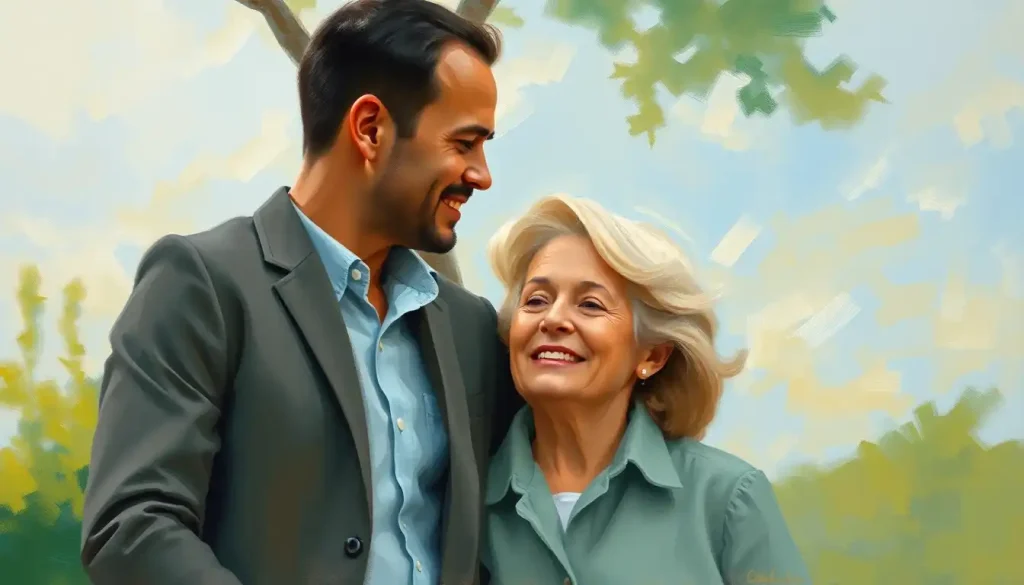Whether you’re raising a young family in the historic Downtown Mall area or enjoying retirement near the University of Virginia, protecting your hard-earned assets and ensuring your loved ones’ future security isn’t just a choice—it’s a crucial step every Charlottesville resident needs to consider. The charming city of Charlottesville, with its rich history and vibrant community, offers a unique backdrop for contemplating your legacy and financial future. But how do you navigate the complex world of estate planning in this picturesque Virginia locale?
Estate planning might sound like a daunting task, conjuring images of thick legal documents and complicated financial jargon. In reality, it’s a thoughtful process that allows you to shape your legacy and protect what matters most to you. At its core, estate planning is about making decisions today that will impact your loved ones tomorrow. It’s a way to ensure your wishes are respected, your assets are distributed according to your desires, and your family is spared unnecessary stress during difficult times.
For Charlottesville residents, estate planning takes on additional nuances. The city’s proximity to prestigious educational institutions like the University of Virginia, its thriving real estate market, and its unique blend of historical and modern assets all factor into creating a comprehensive estate plan. Whether you’re a long-time resident or a newcomer drawn by the area’s charm, understanding the ins and outs of estate planning in Charlottesville is essential.
In this article, we’ll delve into the key components of estate planning, explore the legal landscape specific to Charlottesville and Virginia, and offer strategies tailored to different life stages. We’ll also highlight common pitfalls to avoid and provide guidance on finding the right professionals to help you navigate this important process. So, let’s embark on this journey to secure your legacy and protect your assets in the heart of Virginia.
The Building Blocks: Key Components of Estate Planning in Charlottesville
When it comes to estate planning in Charlottesville, several fundamental elements form the foundation of a solid plan. Let’s break them down:
1. Wills and Trusts: These are the cornerstones of any estate plan. A will outlines how you want your assets distributed after your death and can name guardians for minor children. Trusts, on the other hand, offer more flexibility and privacy. They can help manage assets during your lifetime and beyond, potentially reducing estate taxes and avoiding probate.
2. Power of Attorney: This crucial document allows you to designate someone to make financial and legal decisions on your behalf if you become incapacitated. It’s particularly important for Charlottesville residents who may have complex financial portfolios or business interests.
3. Advance Medical Directives: Also known as a living will, this document outlines your wishes for medical care if you’re unable to communicate them yourself. It’s a vital tool for ensuring your healthcare preferences are respected.
4. Beneficiary Designations: Many assets, such as life insurance policies and retirement accounts, pass directly to beneficiaries outside of your will. Regularly reviewing and updating these designations is crucial to ensure your assets go to the right people.
5. Estate Tax Considerations: While Virginia doesn’t have a state estate tax, federal estate taxes may still apply to larger estates. Understanding these implications is essential for comprehensive planning.
Each of these components plays a vital role in creating a robust estate plan. However, it’s important to remember that estate planning isn’t a one-size-fits-all endeavor. Your plan should be as unique as your life in Charlottesville, reflecting your individual circumstances, goals, and values.
Navigating the Legal Landscape: Estate Planning Requirements in Charlottesville
When it comes to estate planning in Charlottesville, it’s crucial to understand the legal framework that governs the process. Virginia state laws play a significant role in shaping estate planning requirements, and there are some Charlottesville-specific regulations to keep in mind as well.
Virginia, like many states, has its own set of laws that impact estate planning. For instance, Virginia recognizes holographic wills (handwritten wills) as valid, which isn’t the case in all states. However, it’s generally advisable to have a properly witnessed and notarized will to avoid potential complications.
Another important aspect of Virginia law is the concept of elective share. This law allows a surviving spouse to claim a portion of the deceased spouse’s estate, even if the will states otherwise. Understanding this provision is crucial when planning how to distribute your assets.
Charlottesville itself doesn’t have many city-specific estate planning regulations, but local property laws and tax considerations can impact your estate plan. For example, if you own historical property in Charlottesville, there may be specific provisions or restrictions to consider when including it in your estate plan.
Given the complexities of state and local laws, working with a local attorney is invaluable. A Charlottesville-based estate planning attorney will be well-versed in Virginia laws and familiar with any local nuances that could affect your plan. They can help you navigate the legal requirements while tailoring your plan to your specific needs and the unique characteristics of life in Charlottesville.
Tailoring Your Plan: Estate Planning Strategies for Different Life Stages
Estate planning isn’t a one-and-done task; it’s an evolving process that should adapt as your life changes. Let’s explore how estate planning strategies might differ depending on your life stage in Charlottesville.
Young Professionals and Families:
If you’re just starting your career or raising a young family in Charlottesville, your estate planning needs might seem minimal. However, this is an excellent time to lay the groundwork. Consider creating a basic will, designating guardians for minor children, and setting up life insurance policies. As a young professional in a city with a growing job market like Charlottesville, you might also want to consider disability insurance to protect your earning potential.
Mid-life Planning and Asset Protection:
As you progress in your career and accumulate more assets, your estate plan should become more comprehensive. This might be the time to consider setting up trusts to protect your assets and provide for your family. If you own a home in Charlottesville’s competitive real estate market, ensure it’s properly accounted for in your estate plan. This is also a good time to start thinking about long-term care planning.
Retirement and Legacy Planning:
For those enjoying their golden years in Charlottesville, estate planning often focuses on legacy and minimizing tax burdens. You might consider charitable giving strategies, such as setting up a charitable remainder trust. With Charlottesville’s rich cultural scene, you could explore ways to leave a lasting impact on the community through your estate plan.
Special Considerations for Business Owners:
If you’re one of the many entrepreneurs contributing to Charlottesville’s vibrant business community, your estate plan should address business succession. This might involve creating a buy-sell agreement or setting up a trust to manage your business interests.
Remember, these are general guidelines. Your specific estate planning needs will depend on your unique circumstances. That’s why it’s crucial to work with experienced professionals who can help you create a plan tailored to your situation.
Avoiding Pitfalls: Common Estate Planning Mistakes in Charlottesville
Even with the best intentions, it’s easy to make mistakes when planning your estate. Here are some common pitfalls to avoid:
1. Failing to Update Your Estate Plan Regularly: Life changes, and so should your estate plan. Major life events like marriages, divorces, births, or significant changes in your financial situation should trigger a review of your plan. Charlottesville’s dynamic real estate market, for instance, might significantly impact your estate’s value over time.
2. Overlooking Digital Assets: In our increasingly digital world, don’t forget about your online accounts, cryptocurrencies, or digital businesses. These assets need to be accounted for in your estate plan.
3. Neglecting to Plan for Incapacity: While it’s natural to focus on what happens after death, it’s equally important to plan for potential incapacity. Ensure you have proper powers of attorney and healthcare directives in place.
4. Improper Beneficiary Designations: Remember, certain assets like retirement accounts and life insurance policies pass outside of your will. Regularly review and update your beneficiary designations to ensure they align with your overall estate plan.
By being aware of these common mistakes, you can take steps to avoid them and create a more robust estate plan. Estate Planning Attorney in Fairfax, VA: Securing Your Family’s Future offers additional insights into avoiding estate planning pitfalls.
Finding Your Guide: Choosing the Right Estate Planning Professional in Charlottesville
Navigating the complexities of estate planning doesn’t have to be a solo journey. Finding the right professional to guide you through the process can make all the difference. Here’s what to look for when choosing an estate planning attorney in Charlottesville:
1. Experience and Expertise: Look for an attorney with significant experience in estate planning, particularly one familiar with Virginia laws and Charlottesville-specific considerations.
2. Good Communication Skills: Your attorney should be able to explain complex legal concepts in terms you can understand. They should listen to your concerns and goals, and be responsive to your questions.
3. Comprehensive Approach: The best estate planning attorneys don’t just draft documents; they help you think through various scenarios and create a plan that addresses all aspects of your estate.
4. Local Knowledge: An attorney based in Charlottesville will have invaluable insights into local property laws, tax considerations, and community-specific issues that could impact your estate plan.
When searching for an estate planning professional, consider reaching out to local resources like the Charlottesville-Albemarle Bar Association or asking for recommendations from trusted friends or financial advisors. Estate Planning Attorneys in Fredericksburg, VA: Securing Your Legacy and Protecting Your Assets provides additional guidance on finding the right legal professional for your needs.
Once you’ve identified potential attorneys, don’t hesitate to ask questions. Inquire about their experience with estates similar to yours, their approach to estate planning, and how they stay updated on changes in estate law. It’s also wise to ask about their fee structure upfront to avoid any surprises.
Remember, estate planning often involves a team approach. In addition to an attorney, you might benefit from working with a financial advisor, an accountant, and possibly a trust officer. Your estate planning attorney can often help coordinate this team to ensure all aspects of your plan work together seamlessly.
The Charlottesville Advantage: Unique Considerations for Local Estate Planning
Estate planning in Charlottesville comes with its own set of unique considerations that residents should keep in mind. The city’s rich history, thriving real estate market, and proximity to prestigious institutions all play a role in shaping effective estate plans.
Historical Properties: Charlottesville is home to numerous historical properties, some dating back to the 18th century. If you own such a property, your estate plan may need to address specific preservation requirements or easements. You might also want to consider how to pass on not just the property itself, but its historical significance and care requirements to future generations.
University Connections: With the University of Virginia playing such a central role in the community, many residents have strong ties to the institution. Your estate plan might include provisions for charitable giving to the university or establishing scholarships. If you’re a faculty member with intellectual property rights or ongoing research projects, these will need special consideration in your estate plan.
Real Estate Values: Charlottesville’s real estate market has seen significant appreciation over the years. This could impact your estate’s overall value and potentially your estate tax situation. Regular reviews of your estate plan are crucial to ensure it keeps pace with changing property values.
Local Business Interests: If you’re one of the many entrepreneurs contributing to Charlottesville’s vibrant business scene, your estate plan should address business succession. This might involve creating a buy-sell agreement or setting up a trust to manage your business interests after your passing.
Agricultural Assets: For those living in the outskirts of Charlottesville with agricultural properties or vineyards, estate planning takes on additional complexity. You’ll need to consider issues like land use, conservation easements, and the transition of agricultural businesses.
Community Involvement: Charlottesville is known for its strong sense of community and active civic engagement. Your estate plan can reflect this by incorporating charitable giving strategies that benefit local organizations and causes you care about.
By taking these local factors into account, you can create an estate plan that truly reflects your life in Charlottesville and effectively preserves your legacy. Estate Planning in Winston-Salem: Securing Your Legacy and Protecting Your Assets offers additional insights into region-specific estate planning considerations.
Beyond the Basics: Advanced Estate Planning Strategies for Charlottesville Residents
While a basic estate plan is essential for everyone, some Charlottesville residents may benefit from more advanced strategies. These approaches can help manage complex assets, minimize tax burdens, and create a lasting legacy.
1. Irrevocable Life Insurance Trusts (ILITs): These trusts can be used to remove life insurance proceeds from your taxable estate while providing liquidity to your heirs. This can be particularly useful for Charlottesville residents with high-value estates that may be subject to estate taxes.
2. Qualified Personal Residence Trusts (QPRTs): Given Charlottesville’s valuable real estate market, QPRTs can be an effective tool for transferring your home to your heirs at a reduced gift tax cost.
3. Charitable Remainder Trusts (CRTs): These trusts can provide income to you during your lifetime, with the remainder going to a charity of your choice. This can be an excellent way to support Charlottesville’s many cultural institutions or the University of Virginia.
4. Family Limited Partnerships (FLPs): For those with family businesses or significant investment portfolios, FLPs can be an effective way to transfer wealth to the next generation while maintaining some control.
5. Special Needs Trusts: If you have a family member with special needs, this type of trust can provide for their care without jeopardizing their eligibility for government benefits.
6. Education Trusts: With the University of Virginia and other educational institutions nearby, you might consider setting up trusts specifically for your descendants’ education expenses.
Remember, these strategies are complex and may not be suitable for everyone. It’s crucial to work with experienced professionals who can help you determine which approaches align best with your goals and circumstances. Estate Planning in Fairfax, VA: Securing Your Family’s Future provides more information on advanced estate planning techniques.
The Digital Frontier: Incorporating Digital Assets into Your Charlottesville Estate Plan
In today’s digital age, estate planning goes beyond physical assets. Charlottesville residents, like people everywhere, increasingly need to consider their digital footprint when creating an estate plan. This includes everything from social media accounts and email to cryptocurrency and digital businesses.
Here are some key considerations for incorporating digital assets into your estate plan:
1. Inventory Your Digital Assets: Create a comprehensive list of your digital assets, including online accounts, digital currencies, and any digital intellectual property you own.
2. Provide Access Instructions: Leave clear instructions on how to access these assets. This might include passwords, security questions, or the location of a password manager.
3. Specify Your Wishes: Clearly state what you want to happen to each digital asset. Do you want certain accounts closed? Others memorialized? Cryptocurrencies transferred to specific heirs?
4. Choose a Digital Executor: Consider naming a tech-savvy person as your digital executor to handle your online accounts and assets.
5. Address Digital Businesses: If you run an online business based in Charlottesville, include provisions for its management or transfer in your estate plan.
6. Stay Updated: Digital assets can change rapidly. Review and update this portion of your estate plan regularly.
Remember, laws regarding digital assets are still evolving. Working with an estate planning attorney familiar with digital asset laws is crucial to ensure your plan is comprehensive and legally sound. Estate Planning Lawyers in Chesapeake: Protecting Your Legacy and Loved Ones offers more insights into handling digital assets in estate planning.
Protecting Your Plan: The Importance of Regular Reviews and Updates
Creating an estate plan is not a one-time event. Life changes, laws evolve, and your estate plan should keep pace. For Charlottesville residents, several factors make regular reviews particularly important:
1. Real Estate Fluctuations: Charlottesville’s dynamic real estate market can significantly impact your estate’s value. Regular reviews ensure your plan still aligns with your current asset situation.
2. Family Changes: Marriages, divorces, births, and deaths in the family may necessitate updates to your beneficiaries or the structure of your estate plan.
3. Business Developments: If you’re part of Charlottesville’s entrepreneurial community, changes in your business interests should be reflected in your estate plan.
4. Legal and Tax Changes: State and federal laws affecting estate planning can change. Staying informed and adjusting your plan accordingly is crucial.
5. Charitable Intentions: As your philanthropic goals evolve, perhaps influenced by Charlottesville’s vibrant non-profit sector, your estate plan should be updated to reflect these changes.
6. Health Considerations: Changes in your health or that of your beneficiaries might require adjustments to your plan, particularly regarding healthcare directives and long-term care planning.
Aim to review your estate plan every three to five years, or more frequently if you experience significant life changes. This proactive approach ensures your estate plan continues to reflect your wishes and effectively protects your assets and loved ones.
A Community Approach: Estate Planning Resources in Charlottesville
Charlottesville’s strong sense of community extends to estate planning resources. Several local organizations and institutions offer valuable information and assistance:
1. Charlottesville-Albemarle Bar Association: Offers referrals to local estate planning attorneys and hosts educational events.
2. University of Virginia School of Law: Occasionally offers public seminars on estate planning topics.
3. Jefferson Area Board for Aging (JABA): Provides resources on elder law and estate planning for seniors.
4. Local Financial Institutions: Many banks and credit unions in Charlottesville offer estate planning seminars and resources.
5. Charlottesville Area Community Foundation: Can provide guidance on charitable giving strategies as part of estate planning.
Remember, while these resources can provide valuable information, they don’t replace the need for personalized advice from qualified professionals. Estate Planning in Duvall: Securing Your Legacy and Protecting Your Loved Ones offers additional insights into community resources for estate planning.
Embracing Peace of Mind: The Ultimate Benefit of Estate Planning in Charlottesville
As we wrap up our journey through estate planning in Charlottesville, it’s important to remember the ultimate goal of this process: peace of mind. By creating a comprehensive estate plan, you’re not just organizing your assets or minimizing taxes. You’re providing clarity and direction for your loved ones, preserving your legacy, and ensuring your wishes are respected.
In a city as rich in history and community as Charlottesville, estate planning takes on added significance. It’s a way to contribute to the continuity of this vibrant community, whether through charitable bequests, preserving historical properties, or simply ensuring your family remains a part of the fabric of Charlottesville for generations to come.
Estate planning might seem daunting at first, but with the right guidance and resources, it can be an empowering and even enlightening process. It’s an opportunity to reflect on your life, your values, and what you want your legacy to be in this beautiful corner of Virginia.
So, whether you’re a young professional just starting out in Charlottesville, a retiree enjoying the city’s cultural offerings, or somewhere in between, now is the time to take action. Reach out to local estate planning professionals, start those important conversations with your loved ones, and take the first steps towards securing your legacy












Would you like to add any comments? (optional)